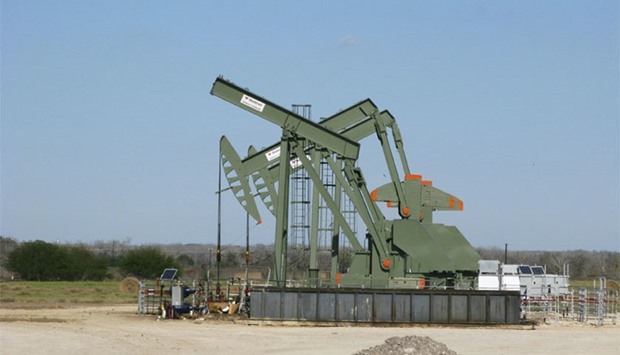Around 1600 GMT, US benchmark West Texas Intermediate (WTI) for delivery in July was 19 cents higher at $48.81 a barrel.
Brent North Sea crude for July won 49 cents to $49.10 a barrel compared with Tuesday's close.
Prices had earlier Wednesday risen close to $50, with WTI reaching a 7.5-month high point at $49.45 a barrel after the American Petroleum Institute (API) reported that US crude inventories last week dropped by 5.14 million barrels.
That data was backed up by the US Department of Energy, which Wednesday said that stockpiles of the country's commercial crude had slid by 4.2 million barrels in the week to May 20.
"The price of oil gained ground for a second day, with Brent pushing on $50 per barrel after the Department of Energy confirmed a big draw in weekly inventories suggested overnight by the API," said Jasper Lawler, analyst at trading group CMC Markets.
The Bank of Canada meanwhile said that the destruction by fire of homes and businesses and the halt to oil production would shave about 1.25 percentage points off the country's gross domestic product in the second quarter.
The central bank, which Wednesday kept its key interest rate at 0.5 percent, added that Canada's economy is still adjusting to a slump in crude oil prices between mid-2014 and February of this year.
The global oil market nosedived from above $100 two years ago to 13-year lows of around $27 in early 2016, plagued by a stubborn supply glut.
They have since rebounded, aided by the Canada wildfires and unrest in oil producer Nigeria.
Commerzbank analyst Carsten Fritsch said the recent rebound was making the cost of North American shale oil attractive once more, "which could dampen the fall in production in the coming months".
He added: "What is more, oil production is gradually resuming in those regions of Canada plagued by wildfires, which means the supply situation is likely to ease again in the coming weeks.
"We therefore do not expect to see prices remain above $50 per barrel for any length of time," he added in a research note.

Prices had earlier Wednesday risen close to $50, with WTI reaching a 7.5-month high point at $49.45 a barrel after the American Petroleum Institute (API) reported that US crude inventories last week dropped by 5.14 million barrels.
Oil advanced Wednesday, with New York prices reaching 2016 highs, as data revealed falls to US crude inventories owing to wildfires slashing production across the Canadian border.
